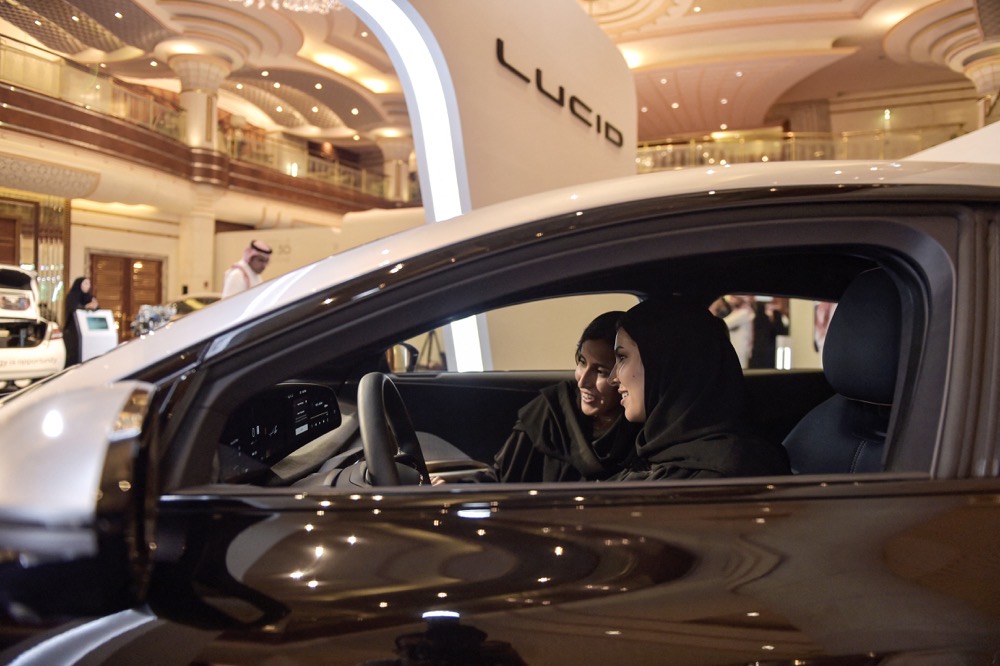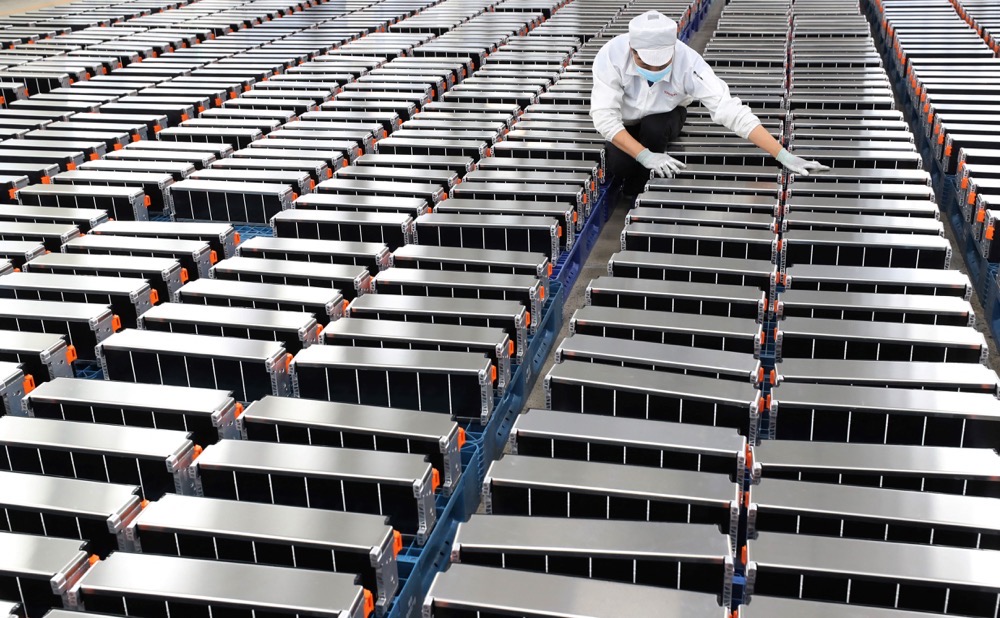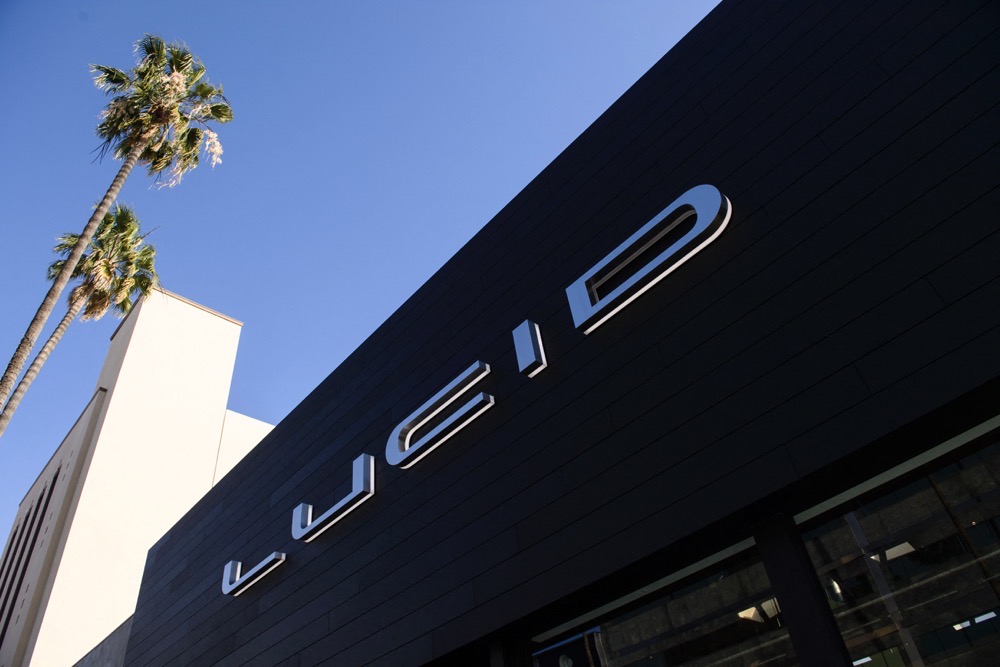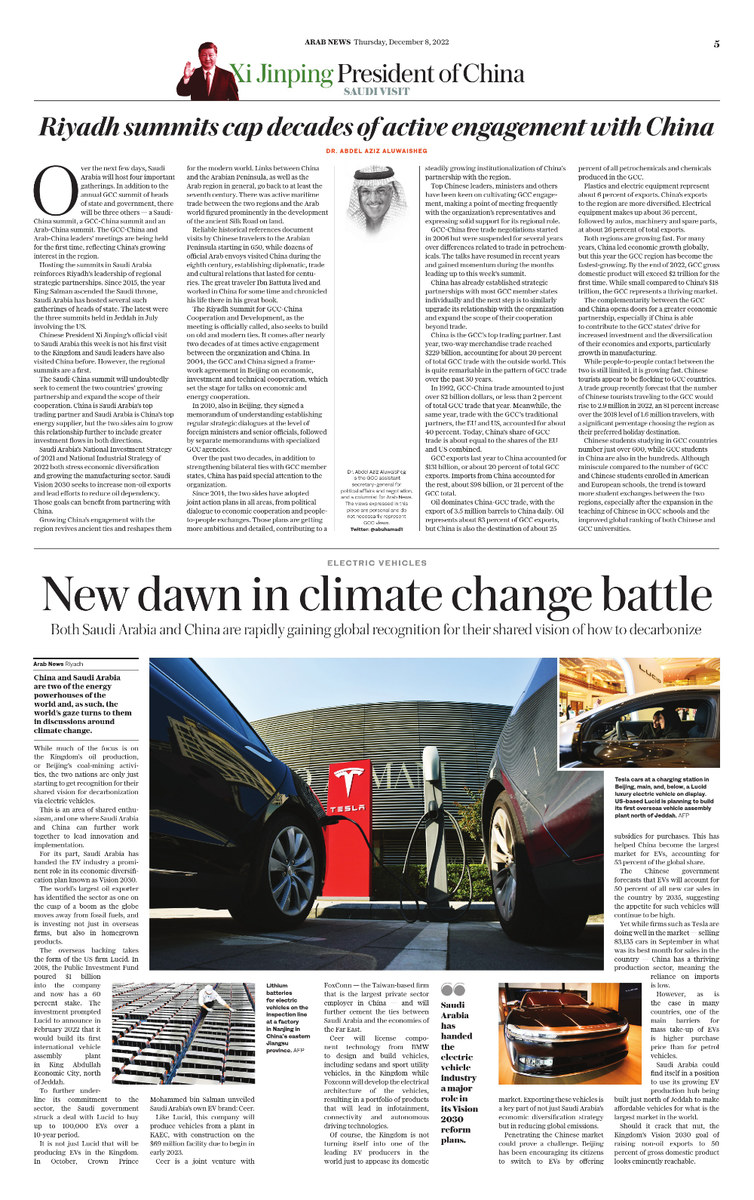RIYADH: China and Saudi Arabia are two of the energy powerhouses of the world and, as such, the world’s gaze turns to them in discussions around climate change.
While much of the focus is on the Kingdom’s oil production, or Beijing’s coal-mining activities, the two nations are only just starting to get recognition for their shared vision for decarbonization via electric vehicles.
This is an area of shared enthusiasm, and one where Saudi Arabia and China can further work together to lead innovation and implementation.
For its part, Saudi Arabia has handed the EV industry a prominent role in its economic diversification plan known as Vision 2030.

Tesla cars at a charging station in Beijing, main, and, below, a Lucid luxury electric vehicle on display. (AFP)
The world’s largest oil exporter has identified the sector as one on the cusp of a boom as the globe moves away from fossil fuels, and is investing not just in overseas firms, but also in homegrown products.
The overseas backing takes the form of the US-firm Lucid. In 2018, the Public Investment Fund poured $1billion into the company and now has a 60 percent stake. The investment prompted Lucid to announce in February 2022, that it would build its first international vehicle assembly plant in King Abdullah Economic City, north of Jeddah.
To further underline its commitment to the sector, the Saudi government struck a deal with Lucid to buy up to 100,000 EVs over a 10-year period.
It is not just Lucid that will be producing EVs in the Kingdom. In October, Crown Prince Mohammed bin Salman unveiled Saudi Arabia’s own EV brand: Ceer.

Lithium batteries for electric vehicles on the inspection line at a factory in Nanjing in China’s eastern Jiangsu province. (AFP)
Like Lucid, this company will produce vehicles from a plant in KAEC, with construction on the $69 million facility due to begin in early 2023.
Ceer is a joint venture with FoxConn — the Taiwan-based firm that is the largest private sector employer in China — and will further cement the ties between Saudi Arabia and the economies of the Far East.
Ceer will license component technology from BMW to design and build vehicles, including sedans and sport utility vehicles, in the Kingdom while Foxconn will develop the electrical architecture of the vehicles, resulting in a portfolio of products that will lead in infotainment, connectivity and autonomous driving technologies.
Of course, the Kingdom is not turning itself into one of the leading EV producers in the world just to appease its domestic market. Exporting these vehicles is a key part of not just Saudi Arabia’s economic diversification strategy but in reducing global emissions.
Penetrating the Chinese market could prove a challenge. Beijing has been encouraging its citizens to switch to EVs by offering subsidies for purchases. This has helped China become the largest market for EVs, accounting for 53 percent of the global share.

US-based Lucid is planning to build its first overseas vehicle assembly plant north of Jeddah. (AFP)
The Chinese government forecasts that EVs will account for 50 percent of all new car sales in the country by 2035, suggesting the appetite for such vehicles will continue to be high.
Yet while firms such as Tesla are doing well in the market — selling 83,135 cars in September in what was its best month for sales in the country — China has a thriving production sector, meaning the reliance on imports is low.
However, as is the case in many countries, one of the main barriers for mass take-up of EVs is higher purchase price than for petrol vehicles.
Saudi Arabia could find itself in a position to use its growing EV production hub being built just north of Jeddah to make affordable vehicles for what is the largest market in the world.
Should it crack that nut, the Kingdom’s Vision 2030 goal of raising non-oil exports to 50 percent of GDP looks eminently reachable.

















